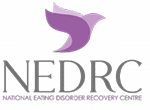National Eating Disorders Recovery Centre
First in Eating Disorders
Eating disorders: Myths and Misconceptions
There is a whole range of eating disorders: myths and misconceptions that can delay early detection and treatment. These myths can also contribute to the stigma experienced by those living with an eating disorder and their family and friends.
Myth and Misconceptions: Eating Disorders almost always occur in people who have engaged in dieting.
Fact: Eating Disorders almost always occur in people who have engaged in dieting or disordered eating. Persistent and unhealthy dieting can lead to significant mental and physical consequences. This is particularly true if the dieting behaviours start in childhood or adolescence. Dieting is linked with depression, anxiety, nutritional and metabolic problems, and contrary to expectation, an increase in weight. Intuitive eating is far better way to follow your body’s lead.
Myth: People who are of average weight or “overweight” cannot have an Eating Disorder.
Fact: An Eating Disorder cannot be detected based on weight, nor can its severity and impact. While some Eating Disorders (Anorexia Nervosa) are characterised by severe weight loss, other Eating Disorders (Bulimia Nervosa and Binge Eating Disorder) are not. In fact, people with Bulimia Nervosa tend to be at an average or above average weight. In the same way, achieving a normal weight does not mean recovery is complete, as Eating Disorders have a range of complex medical and psychological impacts. We implement the principles of Health At Every Size (HAES).
Myth: Families, particularly parents, are to blame for Eating Disorders.
Fact: There is no evidence that Eating Disorders are caused by particular parenting styles. In fact, family and friends can play a crucial role in the care, support and recovery of people with Eating Disorders. There is, however, evidence that Eating Disorders have a genetic basis and people who have family members with an Eating Disorder may be at higher risk. Genetics play a role in many illnesses, so while a person’s genetics may predispose them to developing an Eating Disorder, this is certainly not the fault of the family. At NEDRC, we operate on a “No Blame, No Shame”” philosophy.
Myth: If I binge eat it means I am a weak person.
Fact: Bingeing is not the result of being weak. Treatment can help you uncover and to control the factors that influence eating behaviours, but weakness is not one of them. Eating Disorders are serious mental illnesses and they vary for everyone. It is important to seek help so you can work on identifying what your individual triggers might be.
Myth: Once you have an Eating Disorder you will never get better
Fact: It is absolutely possible to recover from an Eating Disorder. Even people who have been living with an Eating Disorder for many years can get better. The path to recovery can be long and challenging, but with support from the right team of professionals here at NEDRC and with a high level of commitment from the individual, recovery is certainly possible.
Myth: Eating Disorders only affect women and girls, usually teenage girls.
Fact: While it is true that the peak period for the onset of Eating Disorders is between the ages of 12 and 25. It is also true that women are at high risk, particularly those going through key transition periods (e.g., from school to adult life). However, this high risk has led to the widespread misconception that Eating Disorders only affect females. In reality, Eating Disorders can affect anyone. They occur in both men and women of all ages and affect people from all cultural and socio-economic backgrounds. It is estimated that a 1/3 of people with an Eating Disorder are male. Recent studies have found that Anorexia Nervosa is more common among males than previously thought.
Myth: Eating Disorders are a lifestyle choice. Eating Disorders are caused by vanity and body ideals.
Fact: An eating Disorder is a serious mental illness that can potentially lead to death. Eating Disorders involve considerable psychological distress and multiple medical complications. They are not a lifestyle choice or a diet gone too far. The link between Eating Disorders and vanity is mistaken. Eating Disorders often co-occur with other mental illnesses, such as depression and anxiety. A person may experience severe disturbances in their behaviour around food, body and exercise because of difficulties managing their thoughts and emotions. Furthermore, there is a growing body of evidence that Eating Disorders have a genetic component.
Myth: Eating Disorders are a cry for attention or a person going through a phase.
Fact: People with Eating Disorders are not seeking attention. In fact, due to the nature of Eating Disorders a person may go to great lengths to hide their behaviour, or may not recognise there is anything wrong. An Eating Disorder is not a phase, it is a serious mental illness that requires treatment and support. The belief that someone with an Eating Disorder will ‘just get over it’ can be very harmful because it can delay seeking treatment.

“They may forget your name, but they will never forget how you made them feel”
Families are an important part of the recovery process and we encourage their participation but only with your consent. We also understand that not everyone has a relationship with their family and would not force this connection.
About Us
The National Eating Disorders Recovery Centre (NEDRC) supports a realistic view to health and weight. We incorporate WHO, NICE, MARSIPAN and the HSE Model of Care for Eating Disorders guidelines along with elements of Health at Every Size (HAES) principles, Intuitive Eating and Therapeutic Movement. We approach each individual with a holistic view, using the Medical, Therapeutic, Psychosocial and Recovery models.

Start your recovery journey today
Give us a call to schedule an appointment.
Phone: 01 564 4450 / 087 7755996
















